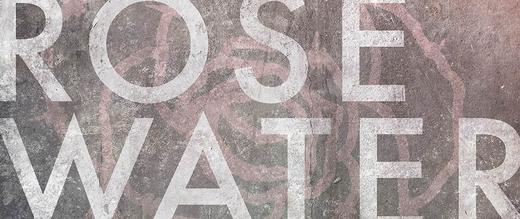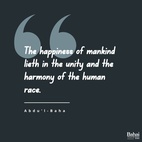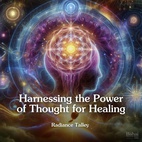The views expressed in our content reflect individual perspectives and do not represent the authoritative views of the Baha'i Faith.
Throughout my adult life, starting during the war in Vietnam and continuing in my many encounters with the worst in human behavior in other  war zones around the world, I’ve had a powerful interest in doing what I could to stop torture. I’ve supported anti-torture campaigns and organizations, and worked to eliminate torture. Along the way, in meetings with both torturers and their victims, I’ve tried to learn a little about the human soul, and about what could possibly compel one person to brutalize others.
war zones around the world, I’ve had a powerful interest in doing what I could to stop torture. I’ve supported anti-torture campaigns and organizations, and worked to eliminate torture. Along the way, in meetings with both torturers and their victims, I’ve tried to learn a little about the human soul, and about what could possibly compel one person to brutalize others.
Literature and film have begun to explore this difficult territory, too, and recent films like Rosewater, the story of Maziar Bahari’s torture in an Iranian prison, have presented an unflinching portrait of not only the victims of torture, but of those who inflict torture. Jon Stewart’s powerful film asks: Who would carry out such heinous acts? What kind of a person inflicts pain and injury on a fellow human being?
We used to think of torturers as sadists, people who got pleasure from others’ pain. It turns out that may be true of some torturers, but not most.
In trying to answer the questions about what kind of person becomes a torturer, researchers have learned that torturers most often hold a fervent ideology which attributes great evil to some other group. Typically torturers define themselves as guardians of the existing social order, and have an attitude of unquestioning obedience to authority. In other words, torturers follow orders.
That unquestioning obedience to what the torturer perceives as a higher-ranking superior makes him vulnerable to the commands of any hierarchy he joins. In the Nazi death camps and torture chambers, for example, torturers were selected on the basis of their unthinking submission and compliance to authority, and their relative lack of an independent or spiritual moral compass. Those two qualifications, the Nazis found, usually made the most efficient, unfeeling torturers.
The Baha’i writings say that this low level of moral maturation can be its own worst punishment:
The rewards of this life are the virtues and perfections which adorn the reality of man. …there is no greater torture than being veiled from God, and no more severe punishment than sensual vices, dark qualities, lowness of nature, engrossment in carnal desires. When they are delivered through the light of faith from the darkness of these vices, and become illuminated with the radiance of the Sun of Reality, and ennobled with all the virtues, they esteem this the greatest reward, and they know it to be the true paradise. In the same way they consider that the spiritual punishment, that is to say the torture and punishment of existence, is to be subjected to the world of nature, to be veiled from God, to be brutal and ignorant, to fall into carnal lusts, to be absorbed in animal frailties; to be characterized with dark qualities, such as falsehood, tyranny, cruelty, attachment to the affairs of the world, and being immersed in satanic ideas; for them, these are the greatest punishments and tortures. – Abdu’l-Baha, Some Answered Questions, pp. 223-224.
Seen from this perspective, Baha’is believe that cruelty and tyranny brutalizes not just the victim of torture, but the torturer as well. And the punitive, tyrannical mindset that allows people and institutions to use torture doesn’t just impact the torturer himself—it also carries over into the entire society. When we condone the use of torture, we diminish ourselves and our culture. In fact, Abdu’l-Baha said that torture and torment actually increases a society’s depravity, rather than reducing it:
Observe how many penal institutions, houses of detention and places of torture are made ready to receive the sons of men, the purpose being to prevent them, by punitive measures, from committing terrible crimes — whereas this very torment and punishment only increaseth depravity, and by such means the desired aim cannot be properly achieved. – Abdu’l-Baha, The Compilation of Compilations vol. I, p. 262.
Many psychologists, historians, military experts, intelligence operatives and religious leaders tell us that torture is not only morally wrong–but that it doesn’t work. “The desired aim cannot be properly achieved,” Abdu’l-Baha says, and that has proven true again and again, when torture repeatedly fails to provide the promised information or intelligence initially deemed so necessary and imperative.
Instead, the Baha’i teachings recommend, we can best and most effectively meet our goals and live up to our moral standards, ethics and principles with one simple approach–the consistent expression of kindness, even to our society’s worst enemies:
One thing remains to be said: it is that the communities are day and night occupied in making penal laws, and in preparing and organizing instruments and means of punishment. They build prisons, make chains and fetters, arrange places of exile and banishment, and different kinds of hardships and tortures, and think by these means to discipline criminals, whereas, in reality, they are causing destruction of morals and perversion of characters. The community, on the contrary, ought day and night to strive and endeavor with the utmost zeal and effort to accomplish the education of men, to cause them day by day to progress and to increase in science and knowledge, to acquire virtues, to gain good morals and to avoid vices, so that crimes may not occur. – Abdu’l-Baha, Some Answered Questions, p. 271.
…ye must show forth tenderness and love to every human being, even to your enemies, and welcome them all with unalloyed friendship, good cheer, and loving-kindness. When ye meet with cruelty and persecution at another’s hands, keep faith with him; when malevolence is directed your way, respond with a friendly heart. To the spears and arrows rained upon you, expose your breasts for a target mirror-bright; and in return for curses, taunts and wounding words, show forth abounding love. Thus will all peoples witness the power of the Most Great Name, and every nation acknowledge the might of the Ancient Beauty [Baha’u’llah], and see how He hath toppled down the walls of discord, and how surely He hath guided all the peoples of the earth to oneness; how He hath lit man’s world, and made this earth of dust to send forth streams of light. – Abdu’l-Baha, Selections from the Writings of Abdu’l-Baha, p. 21.


















Comments
Sign in or create an account
Continue with Facebookor